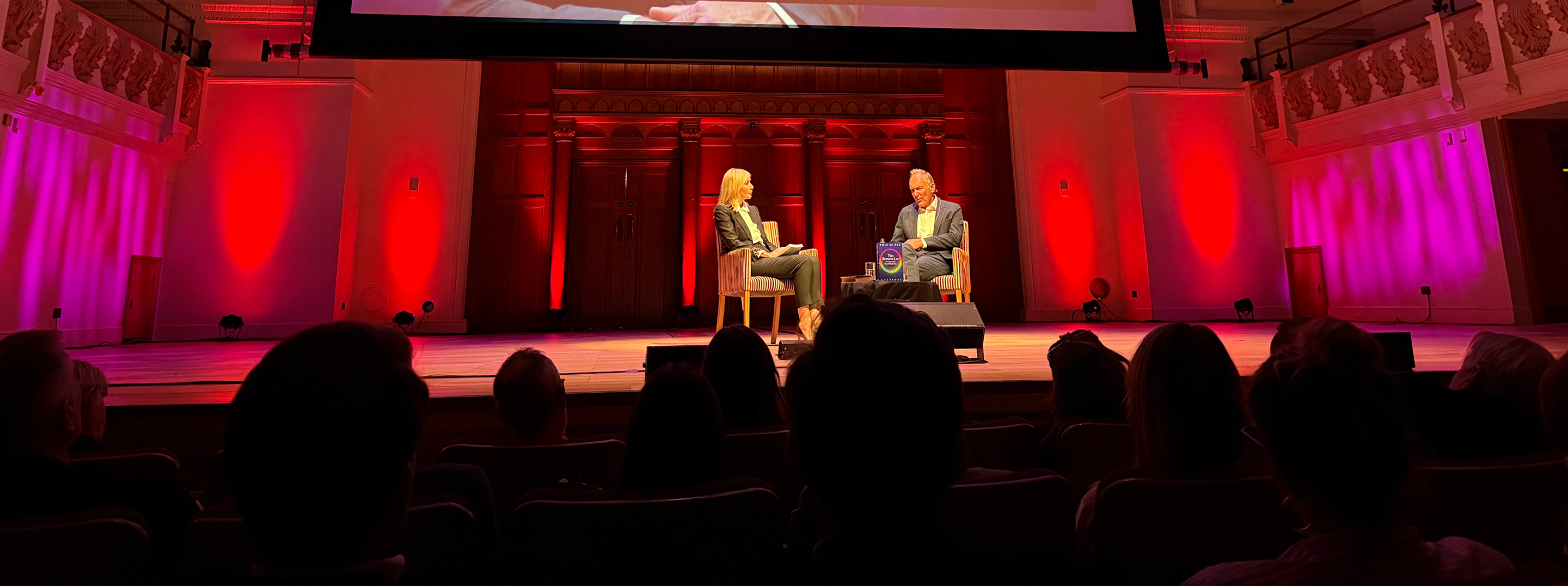Meeting My Hero, Tim Berners-Lee and Why His Vision Matters More Than Ever .
For my birthday, I was given tickets to attend a lecture by Tim Berners-Lee – a bit of a hero of mine and someone I’m proud to say I’ve now met. Yes, name dropping!
The lecture was nothing short of extraordinary. Berners-Lee covered the history of the World Wide Web and its potential future trajectories with a mix of technical brilliance, ethical urgency, and cautious optimism that left me both inspired and reflective about the digital world we inhabit.
The Man Who Made the Web Free
Berners-Lee’s foundational work needs little introduction, but its significance bears repeating. At CERN, he invented the World Wide Web a revolutionary way to interlink digital information that transformed communication, creativity, and commerce. What made him exceptional wasn’t just the invention itself, but his decision to make it free and open.
In 1993, he ensured the web was released without patents or licensing fees, preventing corporate control and fragmentation that could have killed innovation before it began. Through the W3C (World Wide Web Consortium), he went on to set the universal standards that underpin everything we now take for granted online.
From Static Pages to the Attention Economy
Berners-Lee traced the web’s evolution from its static beginnings (Web 1.0) to the interactive, data-driven platforms of Web 2.0. This era brought huge opportunities for connection, collaboration, and creativity but also introduced a darker side: surveillance, tracking, and manipulation.
He was clear-eyed in his critique of the attention economy a system engineered to maximise engagement, often at the cost of wellbeing and truth. Cookies, algorithms, and content feeds have turned human focus into a commodity. The result? Platforms that monetise distraction rather than enable meaning.
The Crisis of Platform Accountability
Berners-Lee also took aim at the unchecked power of tech monopolies. From Apple’s closed ecosystem to Facebook’s social empire, he pointed to the systemic failures in preventing the spread of misinformation, exploitation, and harm particularly among younger users.
He praised regulatory efforts such as the EU’s attempts to rein in algorithmic harm but acknowledged the complexity of the task: how do we hold platforms accountable without stifling innovation or enabling censorship?
SOLID: A Vision for Data Sovereignty
At the heart of Berners-Lee’s current work lies SOLID (Social Linked Data), a protocol that could radically reshape how we manage our digital lives. Instead of surrendering data to corporate silos, SOLID allows individuals to store information in personal data pods choosing exactly what to share and with whom.
This isn’t just a technical innovation it’s a philosophical shift. It imagines a move from the attention economy to an intention economy, one that restores agency to individuals and redefines the relationship between users and technology.
Berners-Lee envisions a future where power flows back to people, privacy is a right, and innovation thrives on decentralisation though he was honest about the challenges ahead: scaling, incentives, and adoption will all take time.
AI, Coding, and the Human Element
Berners-Lee’s perspective on AI was equally thoughtful. He recognised its transformative potential but warned that human oversight and ethics must remain central. Open, transparent AI models echoing CERN’s collaborative spirit are vital for ensuring progress benefits everyone, not just corporations.
He reminded us that the web’s future will depend on both technology and morality.
The Fiora Angle: From Attention to Intention
Berners-Lee’s vision challenges us as designers, developers, and digital strategists to rethink how the digital world works. His message is clear success isn’t about holding attention, it’s about serving intention.
At Fiora, we’ve always believed digital isn’t about more technology it’s about better purpose. The idea of an intention economy aligns with how we build digital ecosystems that respect people’s time, intelligence, and autonomy.
The Opportunity Ahead
Moving from attention to intention isn’t just ethical, it’s strategic.
As digital fatigue grows and AI-generated noise floods our feeds, people will choose brands that simplify, not overwhelm.
The winners won’t be those shouting the loudest.
They’ll be the ones listening best.
At Fiora, we see this as both an opportunity and a responsibility, to help organisations design for intention, not attention. To build digital systems that are human, empowering, and genuinely valuable.
Choosing Our Digital Destiny
What struck me most about Berners-Lee’s lecture was his refusal to accept the current trajectory as inevitable. The web’s inventor is still fighting for its soul, still building, still believing in a better digital future.
His message was clear the future of the web isn’t predetermined. It will be shaped by the choices we make now as technologists, policymakers, users, and citizens.
We can choose surveillance or sovereignty.
Monopoly or openness.
Manipulation or empowerment.
Berners-Lee gave us the web. Now he’s challenging us to save it.
